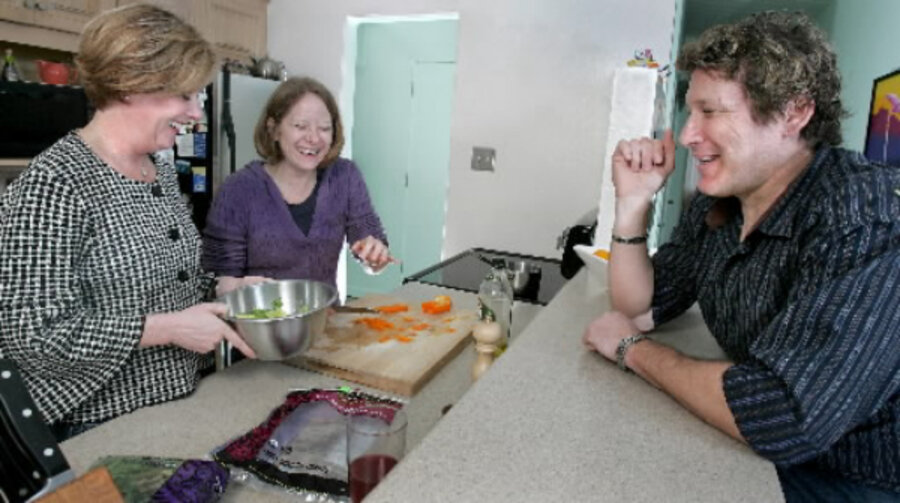The rise of America's 'big babies': young adults living with parents
Loading...
In Italy, they're called "bamboccioni" – big babies – and they're viewed as something of a minor national crisis. They're a generation of young people content (or forced) to live at home with their parents into their late 20s or early 30s.
As of 2010, "more than 60 percent of Italians aged 18 to 34 were still living at home," according to figures cited in Britain's Daily Mail.
With its cheap land and housing options and culture prizing independence over community, it seems unlikely that America will see those kind of numbers anytime soon. But increasing numbers of young adults are delaying or canceling their move-out dates, choosing instead to opt for the convenience, affordability, and (no doubt complicated) emotional warmth that comes from living at home.
According to an August 2013 Pew Research report, a record 21.6 million young adults ages 18 to 31 were living with parents – that's 36 percent. In 2007, 32 percent were living with parents and 34 percent were in 2009, after what many economists marked as the end of the so-called Great Recession.
This trend comes, perhaps not coincidentally, at a time in history where young Americans are less and less interested in getting their licenses and less able to afford driving a car, and less willing to move for work. (Case in point: the booming yet still-underpopulated state of North Dakota.)
America, the culture of mobility, of frontiers, of rebirths, and of inspired rootlessness, appears to be settling down – or at least toning down its wanderlust.
Declining marriage rates, climbing college enrollment, and declining employment all seem to be feeding into the new stay-at-home-experiment. For some, it's a conscious choice that brings a mix of tangible benefits (grandma and grandpa as in-home sitters) and intangible joys (always sharing meals with the whole family), and for others it's simple practicality – sharing a home with mom and dad means a bigger, better place to stay ... or just a place to stay, period.






